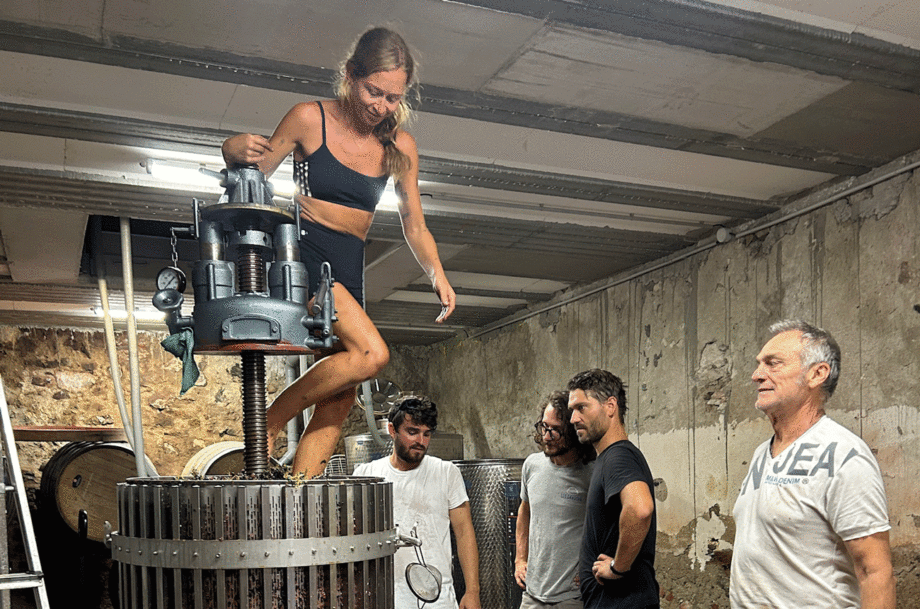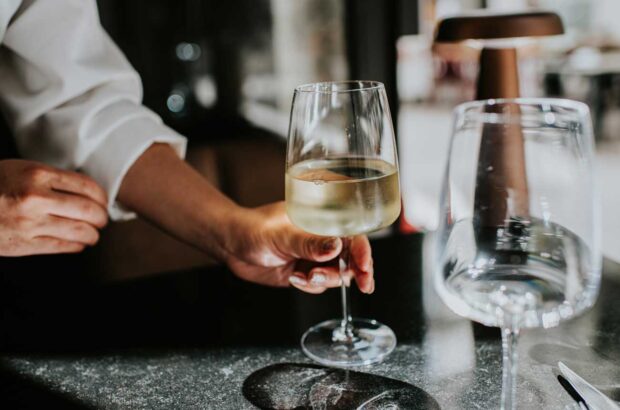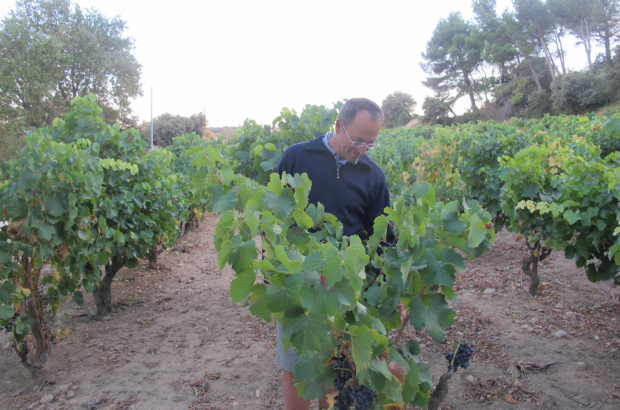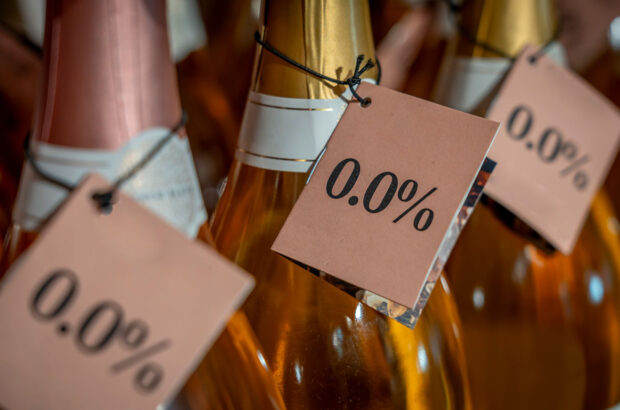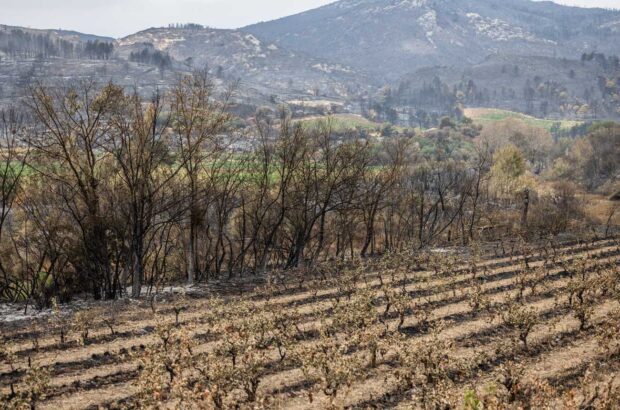If I could tell you just one thing about wine harvest, I’d tell you this: It’s the antidote to ennui. It’s the salve for jadedness, and a recipe for the restoration of faith – not just in wine.
There’s no better way to explain les vendanges than adult summer camp – though with copious drinking, and even more manual labour.
For the uninitiated, it’s the month-long period during which any winemaker’s grapes are ready. There’s a sense of urgency: the fruit must be picked and processed before it’s overripe. Volunteers flock, arriving at various domains in droves to sleep in dorms, spare bedrooms and tents and wake up before the sun to pick, press and stomp grapes.
Should you choose to submit to this brand of blissful masochism, you will work 12-hour days. You will make friends quickly, deeply, hungrily, while you work.
You will drink beautiful things, bleed from your fingers, and wake up with earwigs crawling on your clothes.
Where things come from has always been an elusive, watery question for me.
Growing up in New York, per the narrow parameters of my city kid education, it seemed that produce came from grocery stores, flowers from florists, and water from plastic bottles. Of course, I knew these things had their far-off sources, but they seemed distant and irrelevant in the grand scheme of my metropolitan life.
Wine harvest, however, is a masterclass in origin stories – this wildly voyeuristic glimpse into the root of things. It’s a messy, endless lesson in what goes into a bottle.
Of course, I’d always known intellectually that wine was made from grapes – this is not niche information. But harvest allowed me to carry the truth of that fact in a deeper and more intuitive part of my brain. It gave dimension to my grasp on wine as a narrative arc.
I worked my first harvest in 2022 in Chablis, where the grapes grew so close to the ground, we had to pick on our knees. I learned to de-stem with my hands and measure sugar densities.
I made friends I still see yearly.
My second harvest took place in Alsace, where the grapes lived at a comfortable standing height. My French grew smoother, and I learned how to clean a press.
My third harvest transpired in Burgenland, Austria, where we picked through the middle of the night by the shaky beams of headlamps, so as to avoid the glaring heat. And the fourth, just this past August, took place in Roussillon, where a late summer heat wave broke in favour of ceaseless rain.
If you were to ask me why I continue to subject myself to weeks of 5am wake-up calls and heels stained red from stomping Carignan in barrels I’d tell you that it’s like some proverbial reset button. Yes, it’s antithetical to the laptop-tethered work of a writer, and a welcome break from New York, but more so, I go because it reminds me why I wanted to work in wine in the first place.
Stripped of restaurant politics, mark-ups, allocation-bids and scores, it’s just the thing itself.
The industry is fatiguing, no matter your angle of approach. There’s the gatekeeping and the snobbery. The lofty, inaccessible prices. The righteous sommeliers, the showboat-y auctions, the patrons poised to judge you for ordering the second-cheapest bottle. At a certain point, wine becomes a consumer good, not an art form. And as a writer covering the topic, it can start to feel like reporting on NFTs or cryptocurrency – lofty, intellectualised fodder buoyed by money.
At harvest, however, it’s not subject matter. It’s wine.
‘My first harvest actually changed my life, to be completely honest,’ says Audrey Aubertin, who works as a server and sommelier at Montreal wine bar, Gia. ‘That was in 2022 – and afterwards, I quit my corporate job to work in wine full-time. Every year now, I still look forward to harvest. You meet people you’d never meet otherwise, and you get close to them in a way you wouldn’t in other contexts. It sounds silly, but it kind of reminds me of what it feels like to be alive. You smell and touch and feel and interact… and isn’t that what living is?’
It’s not untrue – this deprioritising of email, of social media, of interaction with the outside world. It feels anachronistic – this harkens back to a moment before smartphones and remote jobs. It teaches presence.
‘When I got back from harvest this year, I made a PowerPoint to show my team what I’d been doing,’ says Hannah Harrington, a sommelier at New York’s Smithereens. ‘Everyone was so excited and inquisitive, it felt so energising to bring my harvest experience back into my work.’
As she explains it, harvest feels like a great equaliser. While you work, there’s no hierarchy: No one’s above washing buckets and bins, or crawling around in dirt, clipping fruit. ‘In the wine world, people always wanna be the best, or know the most. But at harvest, everything feels like this big collective effort. I mean, your literal blood, sweat and tears go into this project, and it feels amazing,’ she says. ‘Being there, I could practically feel my cortisol levels dropping.’
It should come as no surprise that the phenomenon is healing. It’s a return to natural rhythms – you rise with the sun, and fall into deep, uncomplicated post-labour sleep early in the night. You spend time outside, and you feel wholly inside your own body. You have candid, wrenching mid-work conversations.
‘I grew up in an intellectual and education-forward household. I did well at school. I went to university and I got a job in the government. But working a harvest challenged my ingrained notions of success – it taught me a new way to conceptualise intellect and hard work, and intuition,’ says Caitlin McInnis, a writer and researcher with whom I shared a bedroom while harvesting in Alsace. ‘To me, harvest is a remedy for disconnection. It’s a portal to direct, daily contact with the rhythms of nature. It’s a delicious, humbling thing that strips you of all your pretences.’
Simply put, it takes wine from a commodity to a living, breathing thing – more poetry than ‘product’. And when all’s said and done, you can taste that nuance in the bottle – the vine rapport, the early mornings, the late nights, the human hands.
What is that if not the cure for apathy?


